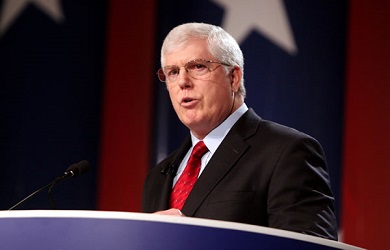Last year, Chuck Colson announced that he would no longer use the phrase “gay marriage” because “there is no such thing” and even using the phrase undermined the institution of marriage by weakening the definition.
Today, Denny Burk, an associate professor of New Testament at Boyce College – which is the undergraduate arm of Southern Baptist Theological Seminary – endorses a similar approach by writing in The Baptist Press that Christians ought to stop using the phrase “gay Christian”:
First, the phrase designates an unbiblical identity. Christians are new creations. They are those who have died with Christ and whose lives are hidden with Christ in God (2 Corinthians 5:17; Galatians 2:19-20; Colossians 3:3). Our primary identity, therefore, is not any sin but Christ. For this reason, Christians never speak of “lying Christians,” “adulterer Christians,” “fornicating Christians,” “murderer Christians,” or “thieving Christians” — even though we know sadly that Christians are capable of all kinds of sins. It’s unseemly to create labels that define Christians by sins from which they actively and self-consciously seek deliverance. We can be honest about our sin without speaking of it as if it were our identity. The phrase gay Christian creates an identity category that we would not accept for any other sin.
Second, the descriptive sense of gay Christian is not well-established. The dominant sense of this term is the one denoted by Brian McLaren, Tony Jones, and a host of others who have distorted in various ways what it means to be a Christian. Because the normative sense is the most common sense, Bible-believing Christians who use the phrase risk being misunderstood. And in fact, some people who don’t want to be pinned down on the issue take refuge in the ambiguity of such expressions. Christians who want to be clear about what the Bible teaches should steer clear of this phrase (2 Corinthians 2:17).
There is no good reason to risk being misunderstood when alternatives are available. At best, gay Christian risks ambiguity. At worst, the phrase might be taken as a wholesale sanction of homosexuality. For these reasons, I would argue that Christians committed to the Bible would be wise to drop the phrase altogether.








